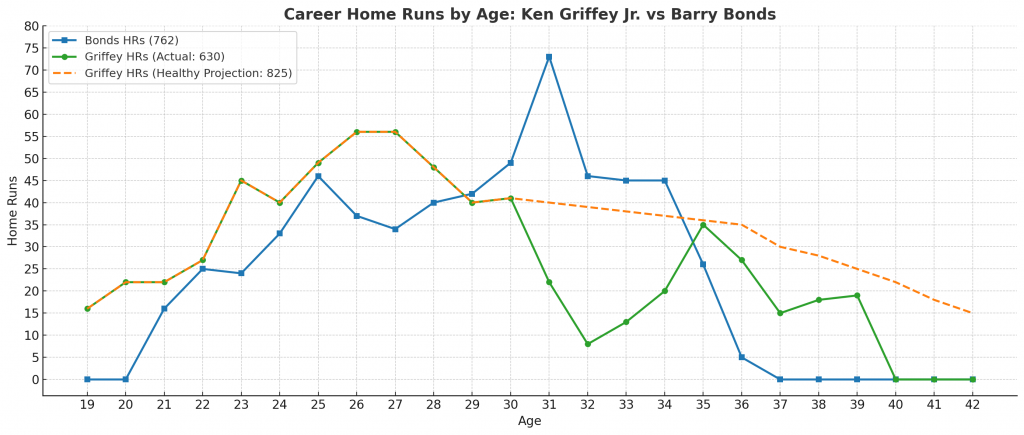Ken Griffey Jr. was not just a star, he was baseball’s blueprint for brilliance. His swing was effortless, his glove was gold, and his presence was magnetic. By the time he turned 30, Griffey had already racked up over 1,600 hits, 438 home runs, 1,200 RBIs, and ten Gold Gloves. He was on pace to rewrite the record books. Then the injuries came.
Had he stayed healthy through his thirties, Griffey could have produced numbers that would stand untouched even today. From ages 31 to 42, a healthy Griffey could have averaged between 35 and 40 home runs annually for at least another six seasons. That is not a reach, it is based on what he had already proven he could do. By that pace, he would have soared past 850 career home runs and easily eclipsed 3,000 hits. His career WAR would have pushed past the century mark, placing him alongside only the most elite in baseball history.

But this projection is about more than numbers. A healthy Griffey would have added another layer to his legend with postseason moments that never came, MVP races that slipped away, and milestones that would have changed how baseball history is framed. His combination of charisma, skill, and consistency could have made him the undisputed face of the sport well into the 2000s.
The conversation around the greatest player of all time often circles around hardware and home run totals, but a fully healthy Griffey would have changed that narrative. He had the rare ability to dominate every aspect of the game; center field defense, base running, contact, and elite power. With a full career, he would not just be in the conversation, he might have ended it.
What we got was extraordinary. But what we missed out on may have been the greatest career the game has ever seen.
